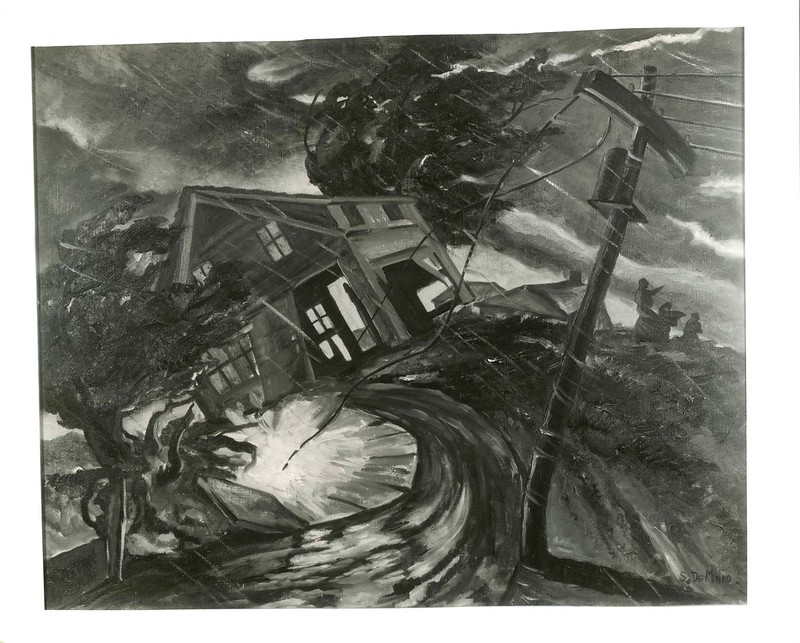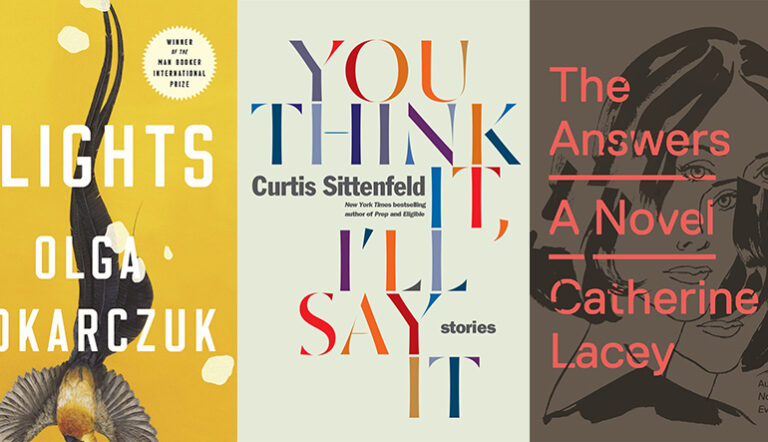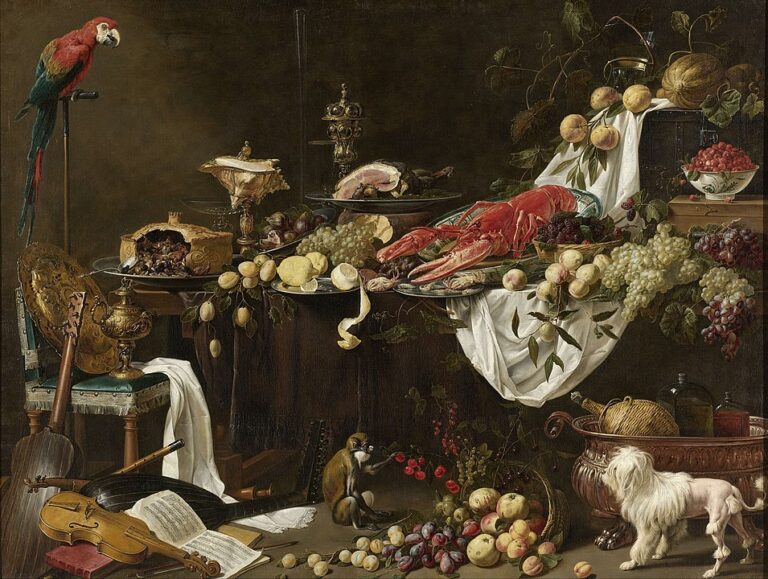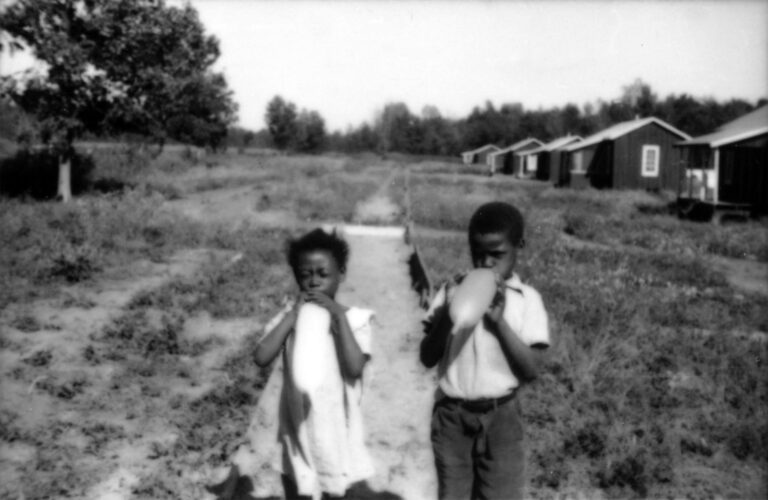Hurricane Diane’s Exploration of Discomfort, Capitalism, and Our Climate Crisis

Hurricane Diane, Pulitzer-prize winner Madeline George’s 2017 adaptation of Euripides’s The Bacchae, begins with a bold promise. Diane—“butch charm factory,” permaculture landscaper, and modern form of Dionysus, the Greek god of theater and agriculture—struts onto the stage castigating the modern world for its environmental (and devotional) failures. “Mining and stripping and slashing and burning and generally despoiling the green earth that gave you life…You don’t know what time it is on the cosmic clock. How could you, with your bird lives, your fruit fly lives, hatching and feeding and breeding and dying, all in the blink of a god’s eye?” We have grown too short-sighted to think in geologic time to see the consequences of our actions, she says. She proposes a drastic measure—Diane will reinitiate her rituals and her “ecstasy [will spread] from village to town until the entire earth hums with organic joy! Every heedless human reawakened to their place in the web of life!” So powerful will these rites be that they will result in an “instant healing of our green planet.”
As the cosmic clock ticks ever closer to midnight, it’s an appealing promise. An ancient rite, a reawakening, a world made green again in an instant. The beauty and hilarity of Hurricane Diane lies in how seductive Diane’s queer-landscape rites prove to be; the tragedy in how even these ecstatic, instantaneous magics are resisted.
We’ll get back to the tragedy in a moment—it feels inevitable if you know The Bacchae or have been paying attention—but I want to start with the beauty and hilarity. It’s where George spends the most time, and it’s there that Diane offers us a truly tantalizing vision of a different way of being in the world.
A remarkably compact play set in one location,—Monmouth, NJ—Hurricane Diane focuses on five characters: Diane and four housewives, who are a blend of Real and Desperate. This compactness allows the play’s ecstatic energies, set against the backdrop of a coming hurricane, to build quickly. Coupled with the queer camp of Diane’s character—“And they always came” Diane promises of her followers—the play is wildly bacchanalian, inviting its readers to revel in Diane’s boundary breaking and the coming storm.
She tempts each of the housewives with lushly decadent landscaping makeovers, their neatly trimmed lawns transformed into “lush primeval forest”: “Green carpet below, sun-dappled canopy above. Blueberries, thimbleberries, huckleberries on all sides that just—fall into your cupped palm at the slightest touch. Imagine cherries at eye level, chestnuts swaying overhead. Imagine the dewy leaves of a pawpaw tree bending down to brush your cheeks as you pass.” It’s plant seduction. A vision of nature teeming with life, eager to reach out and touch us all.
It’s a vision a few of the women approach with welcome, especially as Diane accompanies these ecological erotics with her own overtures. It’s clear once Diane begins her first in a series of successful seductions exactly what Diane’s queer erotics have to offer the women—and why they pair so naturally with the primeval forests she plants.
The first of the wives to succumb, Beth, lives an uneasy existence. Her husband has left her, and she has neither the financial nor the emotional resources to continue as she has been: an ex-housewife. She’s “a little slow” a little “weak,” notes one of the other women. But Beth’s monologue after her first encounter with Diane shows that her unease started long before her husband’s departure. She describes her feelings before her wedding night: “I all of a sudden had this very strong feeling like No No Don’t leave me Don’t leave! Inside me was a box, and I knew if I was alone, even for one night, the lid might fly open and all the leather-winged wildness inside would swarm out. And I would never be able to get it back in again.” As the other housewives begin to fall to Diane, it becomes clear that what the neat suburban lawns offer—order, comfort, stability—are environmentally and psychically damaging. It buries their “leather-winged wildness.”
The wrought iron benches and creeping roses that the wives want seem tamer than the native, globular pawpaw tree or “lush green understor[ies] teem[ing] with beneficial insects, worms, / beetles.” And they are tamer. The permaculture landscape Diane envisions, and even the erotic encounters Diane herself offers, are not comfortable. They’re too out of control, too wild for that. “There they’d taste my honey, gulp my wine, thrash and writhe and weep and dance and stroke animals and lie with animals and tear animals limb from limb and become animals and cry out my name, over and over.”
But it’s the comfort of life under late capitalism, the accumulation of comfort items (blankets and benches, trellises and tea towels) that entraps the women. It offers them the illusion of happiness and stability so that they don’t question the endless cycles of production, consumption, and heteronormative reproduction in which they are entrapped. Diane, with her campy one-liners, pawpaws, and “butch charms,” disrupts this illusion and challenges the women to look for more than consumption and comfort and to revel in breaking boundaries, in embracing their inner animal.
But not all the women embrace Diane’s vision, and this is the play’s tragedy. One of the women, an executive at a pharmaceutical company, resists Diane’s appeal. At first it seems Carol’s intransigence is familiar, perhaps even trite. It’s hard to imagine a life outside of comfort, outside of capitalist consumption, once you’re in it. But as Diane pushes at Carol, we see that Carol’s resistance is more nuanced and more painful for us to acknowledge.
In the play’s climactic scene, Carol reveals that she sees and fully understands Diane’s vision. She knows the doom of the impending storm around her. She knows that the comfort and order of her neatly trimmed suburban life are either false or damaging or superficial. She won’t give them up, though: “Why should I sacrifice even one of my comforts when my comforts are literally all that I have? Bill missed the last train, the girls are writhing at your feet like beasts, my company makes and markets baby-mangling pills but if I stay very still, here among my throws and soft goods, and don’t shift even two inches to the left or right, I won’t have to perceive any of that. I’m not moving. I’m not moving.”
The problem is not that she doesn’t know what’s happening, but that she has been so boxed in, has allowed herself to be so boxed in, that the comforts with which she’s lined her box are also the only things she wants. Even if she knows that the comforts of her suburban life are also keeping her from any movement or future, and that they are condemning the planet to tick ever closer to climate disaster.
Diane is enraged by Carol’s refusal. It’s unclear how much Diane understands of Carol’s reality—Carol’s life is bleak, so why shouldn’t she have her throw pillows?—but in reading this final encounter between Carol and Diane it’s hard not to be aware of how starkly George’s play lays bare a difficult reality: that any meaningful action on climate change will be uncomfortable. That it’s foolish, even dangerous, to avoid discomfort, and that, tragically, there are many for whom comfort is the only thing they are able to cling to in the boxed in world of late capitalism, and so it’s the last thing to which they’ll cling.


